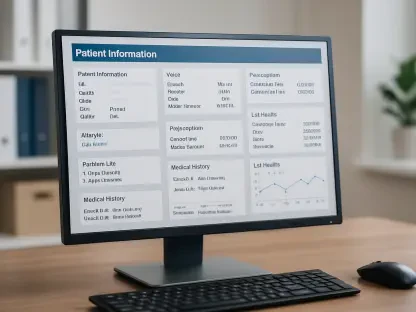I’m thrilled to sit down with James Maitland, a renowned expert in robotics and IoT applications in medicine, whose passion for harnessing technology to revolutionize healthcare solutions has made him a leading voice in the industry. With a deep understanding of electronic health record (EHR) systems and their impact on patient care, James offers invaluable insights into the evolving landscape of health tech. In this interview, we dive into the challenges and opportunities surrounding Oracle Health’s journey since acquiring Cerner, exploring topics like customer retention struggles, competitive dynamics in the EHR market, client satisfaction hurdles, and the promise of emerging technologies like AI. Join us as we unpack these critical issues and look toward the future of healthcare innovation.
Can you walk us through the main factors contributing to Oracle Health’s loss of 57 acute care customers over the past three years?
Certainly. Oracle Health has faced a steep challenge since acquiring Cerner in 2022. A significant factor in losing these 57 customers, including 12 major health systems with over 1,000 beds, is the dissatisfaction inherited from Cerner’s existing client base. Many of these organizations felt neglected due to inconsistent support and unmet expectations. Additionally, the competitive pressure from rivals who’ve capitalized on Oracle’s stumbles has played a role. Health systems are looking for reliability and innovation, and if they sense a vendor can’t deliver, they’re quick to explore other options.
How has the loss of larger health systems impacted Oracle Health’s position in the market?
Losing 12 larger health systems is a big blow. These aren’t just numbers; they’re influential players whose departure signals to the market that something’s off. Large systems often set trends for smaller ones, so their exit can create a ripple effect, eroding trust among other clients. It also shrinks Oracle’s market share, which Klas Research pegs at 23% in 2024 compared to a competitor’s 42%. That gap reflects not just lost revenue but also diminished influence in shaping industry standards.
What are some of the specific pain points clients have expressed about their experience with Oracle Health since the acquisition?
Clients have been vocal about a few key issues. Poor communication stands out—many feel left in the dark about updates or support. There’s also frustration over what they perceive as insufficient industry expertise within Oracle Health, partly due to layoffs that trimmed experienced staff. Another sticking point is the focus on collections over customer care, which makes clients feel like a paycheck rather than a partner. These grievances have led half of the surveyed customers in 2024 to say they wouldn’t choose Oracle’s EHR again.
How have layoffs at Oracle Health affected their ability to support clients effectively?
Layoffs have hit hard. When you cut staff, especially those with deep industry knowledge, you lose the ability to troubleshoot complex issues or provide tailored guidance. Clients notice when responses are slower or less informed. It creates a gap in trust and reliability, which is critical in healthcare where EHR systems are the backbone of operations. Without enough skilled people on the ground, Oracle Health struggles to maintain the level of service clients expect and need.
In terms of the competitive landscape, what do you think has enabled Epic to grow its market share to over 42% while Oracle Health sits at 23%?
Epic has played its cards well. They’ve focused on delivering a consistent, user-friendly experience that aligns with what health systems want—stability and scalability. Their system integrates smoothly across various care settings, which is a huge draw. Meanwhile, Oracle Health has been bogged down by integration hiccups post-acquisition and client dissatisfaction. Epic’s reputation for listening to customers and adapting quickly gives them an edge, allowing them to capture more of the acute care hospital market.
Customer confidence in Oracle as a long-term partner has dropped significantly since 2022. What do you believe is driving this erosion of trust?
The drop from 67% to 47% in customer confidence is telling. A lot of it ties back to unmet promises—clients expected a seamless transition and innovation after the Cerner acquisition, but instead, they’ve faced delays and glitches. High-profile issues, like the troubled EHR rollout at the Department of Veterans Affairs, haven’t helped. When clients see public failures alongside their own frustrations, they start questioning whether Oracle can be a reliable partner for the long haul.
On a brighter note, there’s growing excitement about Oracle Health’s long-term vision and new technologies. Can you share what aspects are resonating with customers?
Absolutely, there’s some optimism here. Customers are intrigued by Oracle’s push into AI, particularly tools like the Clinical AI Agent that automates documentation and suggests next steps. Early adopters have given positive feedback on its potential to reduce clinician burnout. Improved code quality in recent releases also shows progress. Additionally, the new AI-backed EHR for ambulatory providers has sparked interest, even if most clients lack full visibility into it yet. These innovations signal that Oracle is trying to pivot toward a future-focused strategy.
What is your forecast for the future of EHR systems, especially with the integration of AI and emerging technologies?
I’m optimistic about where EHR systems are headed with AI and IoT integration. We’re moving toward platforms that not only store data but actively assist in decision-making—think real-time patient insights or predictive analytics for outbreaks. AI can cut administrative burdens, letting clinicians focus on care. However, the challenge will be ensuring these tools are accessible, secure, and equitable across diverse health systems. For Oracle Health, leveraging AI could be their ticket to regaining trust, but they’ll need to prioritize user experience and robust support to stay competitive in this fast-evolving space.









